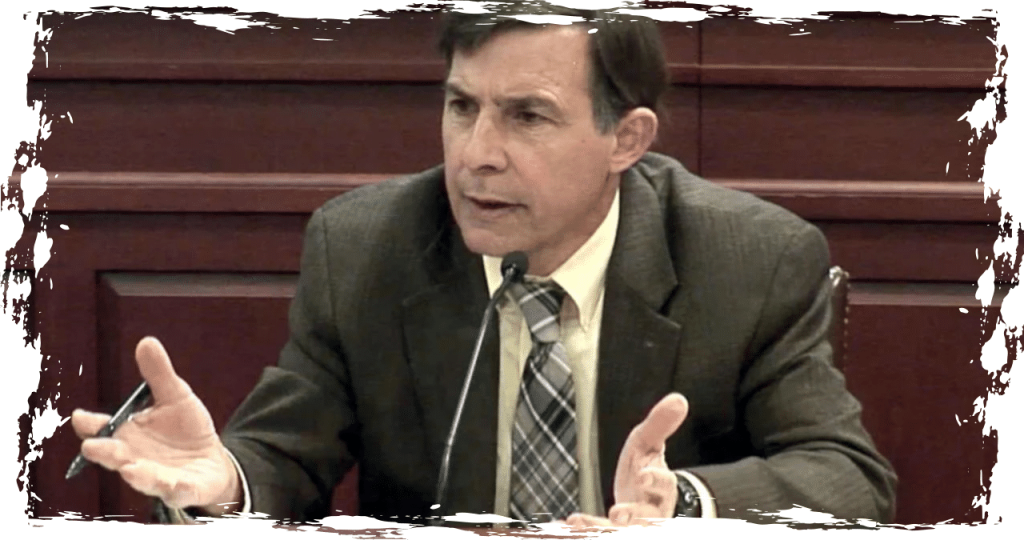Pennsylvania permits oil and gas companies to use wastewater on dirt and gravel roads to control dust.
Ending the practice of [add practice name] is being proposed through a new bill that aims to address concerns regarding human health and the environment.
House Bill 2384, introduced by Rep. Greg Vitali of Havertown, aims to put an end to the practice of spreading wastewater, commonly known as production brine, on all types of land, be it developed or undeveloped.
According to Vitali, the unconventional drilling industry has been violating regulations by spreading wastewater for many years. He clarified during a House Environmental Resources and Energy Committee hearing on Monday that the issue is not limited to this specific industry. The conventional industry has also been spreading oil and gas wastewater on gravel roads and other areas, despite it being prohibited by regulation.
According to Vitali, brine is still being spread on roads despite the fact that the Department of Environmental Protection has not approved permits for this practice since 2018.
Estimating the amount of wastewater spread on roads can be a challenging task. As per one estimation, approximately 3.5 million gallons of wastewater have been spread on roads since 2018.
According to Eric Chase, a research analyst and assistant teaching professor at Penn State University, wastewater studies have revealed the presence of chlorides, bromides, radium, barium, and other petroleum hydrocarbons. In addition, the levels of chlorine in the wastewater were found to be significantly higher than normal.
Chase stated that the dust suppression capabilities of oil and gas-produced waters are inadequate and may result in environmental dangers and damage due to the elevated levels of chloride and radium present in them.
According to Rep. Martin Causer, a Republican from Bradford, the proposed legislation is nothing but an assault on the rural residents of Pennsylvania.
During the committee hearing, a member spoke out against the proposed legislation, stating that it contradicts the environmental rights amendment in the state constitution. He argued that the bill would hinder the local communities’ ability to safeguard the air quality of their residents, which goes against the guarantee of clean air and water for residents of the commonwealth.
According to Causer, townships have been utilizing brine to manage dust on their highways for a considerable amount of time. He strongly believes that the decision of state officials to discontinue its usage is a result of a misinformed perspective.
Ohio and Michigan have utilized brine for both ice and dust control. Ohio has established regulations and standards at the state level, with localities granting permission for its use.
Using brine as a dust and ice suppressant has become popular due to its cost-effectiveness. Unlike commercial suppressants, which can be expensive, brine is essentially free since it is made from wastewater.
Causer was concerned about the practical concern of finding a replacement for the wastewater.
He posed the question, “What other options do we have to manage the dust in places like Warren, McKean, and Potter?” He acknowledged that there are alternatives available, but for a lot of these townships, it’s simply not feasible due to budget constraints. He brought up his own township as an example, which consists of around 700 people and over 40 miles of road. With limited funds, it’s not possible to invest in a commercial product. This begs the question, what other measures can township supervisors take to control the dust?
Former DEP head David Hess has urged for an urgent and complete prohibition on road dumping.
He emphasized that disposing of wastewater without causing harm to people or the environment is crucial, and the only effective way to achieve this goal. Millions of gallons of wastewater can be prevented from polluting the environment through proper disposal.
According to DEP officials, they are in favor of Vitali’s proposed legislative ban.
Those who are against the use of brine argue that it is the state’s duty to put an end to this practice and help the rural communities that have been using it as a means to control dust.
“The state legislature has billions in excess, yet they fail to take action against the harmful practice of road spreading toxic and radioactive waste,” stated Karen Feridun, co-founder of the Better Path Coalition, an environmental advocacy group. She further added, “Instead of allowing such practices, the legislature should ban them and provide necessary funding to municipalities to enable them to take the right steps. As the lawmakers, it’s their responsibility to make agreements with the industry and protect the environment.”
